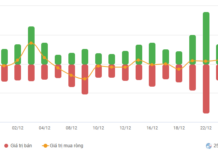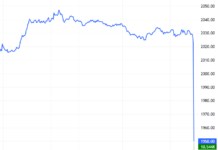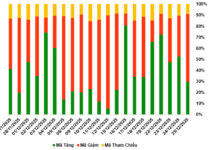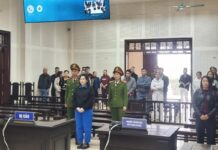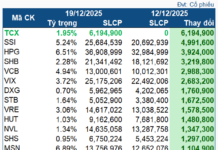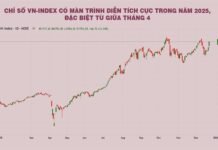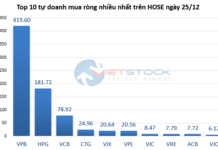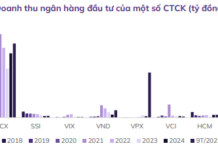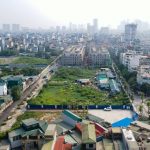
Mr. Nguyen Van Dinh, Vice Chairman of Vietnam Real Estate Association, shared insights at the workshop on the amended Law on Land 2024, asserting that the new regulations prioritize the interests of citizens and homebuyers.
In his speech at the workshop, Mr. Dinh highlighted that the amended Law on Land 2024 takes a citizen-centric approach and aims to maximize protection for homebuyers. Addressing the issue of abandoned resettlement areas due to mismatches with citizens’ needs, the new law mandates the completion of resettlement arrangements before land retrieval decisions can be made.
Furthermore, Decree 102/2024/ND-CP elaborates on land retrieval due to violations of land laws. The law stipulates that if the extended deadline (up to 24 months) passes and the project investor still fails to utilize the land, the state will retrieve the land without compensating for the land, assets attached to the land, or remaining investment costs.
“This regulation will put an end to enterprises speculating and hoarding prime commercial and service land plots, waiting for price increases or permission to switch to residential purposes. As a result, we will maximize land resource utilization and contribute to a healthier real estate market,” emphasized Mr. Dinh.
Additionally, according to the new provisions of the 2023 Law on Real Estate Business, the real estate business environment will become more transparent and align with the government’s direction.
The 2023 Law on Real Estate Business stipulates that brokers must hold practice certificates and operate within real estate brokerage businesses or exchanges. This move will professionalize and bring transparency to the community of real estate brokers.
Another notable regulation is the requirement for real estate businesses and project investors to make payments through banks and disclose project information before commencing business activities. Mr. Dinh believes that these regulations will lay the foundation for building and digitizing a project database, making information publicly available to all market participants, reducing information asymmetry, and minimizing risks for homebuyers.

Mr. Nguyen Van Dinh, Vice Chairman of Vietnam Real Estate Association, and Chairman of Vietnam Real Estate Brokers Association
Notably, Decree 96, detailing certain articles of the Law on Real Estate Business, exempts small-scale individual real estate businesses from having to establish investment projects. The number of transactions is limited to fewer than 10 per year, and each contract must not exceed VND 300 billion. This regulation helps curb speculation, “surfing,” and frequent buying and selling to drive up prices, especially for land plots, a type of property that often experiences “hot” spikes due to the common perception of “owning a piece of land” and the lack of control by local management agencies.
To prevent land plot “fevers” from affecting the real estate market, the 2023 Law on Real Estate Business prohibits 105 cities and towns from subdividing and selling land plots. For the remaining areas, the People’s Committees of the provinces will decide on the areas where investors can subdivide and transfer land plots to individuals for self-construction of houses.
Another important regulation is that real estate project investors are only allowed to collect deposits of up to 5% of the selling price for the sale and lease-purchase of houses and constructions formed in the future. This helps protect homebuyers from the risk of investors mobilizing capital from customers before completing the necessary legal procedures.
At the same time, homebuyers can reduce their financial burden when buying products from reputable investors, as the new Law on Real Estate Business gives customers the right to choose whether to apply for financial guarantees regarding the investors’ financial obligations when signing sale and purchase contracts for houses and construction works formed in the future.
Overall, Mr. Dinh believes that the new Land Law, Housing Law, and Law on Real Estate Business, along with their detailed decrees and guiding circulars, effectively address the limitations and challenges of the previous laws.
However, it is essential to consider potential negative impacts, such as the new land price table, which is closer to market prices, leading to increased costs for land-related budgets, including site clearance, land retrieval compensation, and land-related taxes and fees. This, in turn, may result in higher real estate prices due to the inclusion of project development costs. Nevertheless, VARS maintains that any impact would only be short-lived. In the long run, the market will be determined by the fundamental supply-demand dynamics.
To ensure a smooth recovery of the market, Mr. Dinh suggests that state management agencies and related agencies enhance their capacity for market management and regulation. This includes possessing effective intervention tools and taking timely actions based on a transparent and publicly available real estate information system. Additionally, to improve enforcement effectiveness, the state should strengthen the dissemination and promotion of the newly passed laws among the public and relevant individuals and organizations.
The most extensive bribery case ever in Thanh Hoa: Numerous suspects prosecuted for “Giving and Receiving Bribes”
The Provincial Security Investigation Agency (PSIA) of Thanh Hoa province announced on January 31st that it has made the decision to initiate a prosecution against 23 individuals in connection with the offenses of “Accepting bribes” and “Giving bribes” as stipulated in Article 354(3) and Article 364(2) of the Criminal Code.
Astonishingly high price for old and dilapidated apartment buildings reaching nearly 200 million VND/m2, rivaling the most luxurious condominiums in Hanoi
Old collective apartments with prices starting from 100 million VND/m2 are usually the first-floor units that can be used for commercial purposes, while the upper-floor units are priced at 60-80 million VND/m2 for residential purposes.

